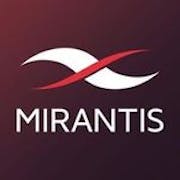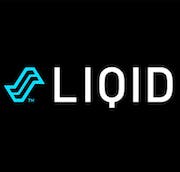Looking for the best data center management software? Our comprehensive buyer's guide covers everything you need to know to make an informed decision. Compare features, pricing, and more. Click here now to find the perfect solution for your business.
Data center management software has transformed the way modern businesses operate. This robust software architecture has become an essential tool in maintaining data centers, ensuring system uptime, and optimizing operations.
However, with so many vendors and technologies available, selecting the best one can be daunting. Whether you’re responsible for managing a small facility or overseeing multiple large-scale facilities, choosing the right management software is critical for the success of your business.
To help you get started, we’ve compiled this comprehensive data center management software buyer's guide that will provide insights on the essential features to look out for, and some recommended products that can help you make an informed decision.
What is DCM software?
Data center management (DCM) software refers to a suite of tools for the centralized administration and maintenance of data facilities. It is essentially a system that provides IT managers with the necessary tools to manage, optimize, and automate their data center resources, ensuring that they run smoothly and efficiently.
The software package generally includes several components, ranging from monitoring and management protocols to security and storage management tools. This software provides businesses with an extensive set of insights into their data center operations, allowing them to take proactive steps to avoid issues and improve efficiencies.
Common use cases for DCM software are:
-
Monitoring and management of server and network infrastructure
-
Asset management and tracking of resources, including servers, storage and networking equipment
-
Capacity planning and optimization to ensure efficient resource utilization
-
Power and cooling optimization to reduce energy consumption and costs
-
Data protection and backup management to ensure system availability and data integrity
-
Compliance and policy management for adherence to regulatory requirements.
Data center managers in a variety of large and small companies, including those in the tech, healthcare, financial services, and retail industries, use DCM software to optimize their operations. From large enterprises that maintain multiple data facilities around the world to small and medium-sized businesses with only one location, the software has become an essential tool for maintaining and managing their data center resources efficiently.
To summarize, DCM software is an essential tool that offers businesses the means to monitor, track, and optimize their data center resources. Adopting DCM technology within your organization can result in faster and more efficient operations, improved reliability, and reduced operating expenses.
What are the benefits of DCM software?
In today's data-driven world, businesses rely heavily on their data facilities to process, store and manage their critical data. DCM software is a comprehensive tool that helps businesses simplify and streamline the management and operation of their entire data centers. It is a crucial investment for any business that wants to stay competitive and relevant in today's market. Let's explore some of the main benefits of DCM software:
-
Centralized management: DCM technology provides a central location for businesses to manage all aspects of their infrastructure, facilitating the fast and efficient implementation of critical components. This helps businesses save time and reduce their management overhead.
-
Improved efficiency: With better visibility and control of their infrastructure, businesses can optimize the performance of their systems, which improves overall efficiency. This can lead to significant cost savings in energy consumption, staff time, and maintenance costs.
-
Enhanced security: Security is a top concern for businesses when it comes to their data. DCM technology delivers advanced security features like monitoring, alerting, and access controls that help businesses protect their data and IT infrastructure from data breaches, cyberattacks, and unauthorized access.
-
Scalability: DCM technology makes it easy for businesses to scale up or down their data center environment as their demand or needs change. This scalability helps businesses avoid unnecessary costs and delays when it comes to upgrading their systems.
-
Greater uptime: DCM technlogy provides businesses with real-time insights and alerts that help them prevent system downtime by highlighting potential issues before they occur. This leads to greater uptime, which helps businesses maintain their operations and avoid unnecessary downtime.
In conclusion, DCM technology is a critical investment for businesses that want to manage their facilities efficiently, effectively, and securely. By providing centralized management, improving efficiency, enhancing security, facilitating scalability and improving uptime, businesses can protect their critical data and stay competitive in today's data-driven market.
What are the key features of DCM software?
DCM technology plays a critical role in managing and optimizing the IT infrastructure of modern organizations. It provides a comprehensive solution for monitoring, controlling, and optimizing data center resources, including servers, networks, and applications. In this section, we will highlight 10 key features of data center management software to help you understand its importance better.
1. Real-time monitoring
DCM software provides real-time data collection and insights of data center resources, allowing IT teams to quickly detect and respond to issues. It helps them track resource utilization, temperature, and power consumption.
2. Automated workflows
With data center management software, IT teams can automate routine tasks, such as backup, recovery, and patching, reducing the manual effort required. It also helps prevent human errors and ensures compliance with organizational policies.
3. Capacity planning
With capacity planning features, IT teams can forecast usage trends and plan for future capacity requirements. This helps optimize resource utilization, reduce costs, and ensure service availability.
4. Security management
Data center management tools help IT teams manage security by providing automated security updates, vulnerability scanning, and access controls. It also provides visibility into user activity and helps identify potential security threats.
5. Asset management
Asset management is a key feature that helps IT teams track and manage hardware and software inventory, including details such as serial numbers, licenses, and configurations.
6. Reporting and analytics
Data center management software provides sophisticated reporting and analytics capabilities, allowing IT teams to analyze their data center environment, assess performance, identify trends and optimize operations.
7. Dashboards
Modern data center management tools come equipped with customizable dashboards, enabling IT teams to view critical information at a glance.
8. Remote management
With remote management capabilities, IT teams can manage data center resources from anywhere, anytime. This helps them respond to issues quickly, even when they are off-site.
9. Disaster recovery
Data center management software features disaster recovery capabilities, enabling IT teams to recover from disasters quickly, minimizing downtime and keeping critical systems up and running.
10. Multi-vendor support
Data center management software provides support for a wide variety of hardware and software vendors, making it easy for IT teams to manage heterogeneous environments.
In conclusion, data center management software is a critical tool for modern organizations, providing comprehensive solutions for managing and optimizing data center resources. Its features are designed to enhance efficiency, reduce costs, improve security and ensure service availability. By adopting data center management software, organizations can stay competitive, adapt to changing business needs, and meet customer expectations.
What to consider when assessing DCM solutions?
DCM software is a critical investment for any business that relies on robust IT infrastructure to support its operations. The right software can ensure optimal performance, availability, and security of the data center, which leads to increased productivity, operational efficiency and cost savings. When choosing a DCM solution, businesses should consider several factors to ensure they make the right investment.
Firstly, the software should be scalable and flexible to accommodate changing business needs. It should be able to support the current and future infrastructure demands as the business grows [1]. Additionally, it should be easy to use, with a user-friendly interface and dashboard that presents critical information in a clear and concise manner.
Secondly, the software should offer comprehensive environmental and remote monitoring and reporting capabilities to provide real-time data collection and insights into the data center's performance. This can include alerts for potential issues, proactive maintenance recommendations, and performance metrics.
Thirdly, the software should be highly secure to protect the data center from internal and external threats. This can include access controls, user authentication, and encryption to prevent data breaches.
Lastly, the software should be compatible with the existing IT infrastructure and systems, including hardware, software, and network infrastructure [3]. This ensures seamless integration and interoperability, avoiding costly downtime and disruptions.
In conclusion, businesses should consider scalability, ease of use, environmental monitoring and reporting capabilities, security and compatibility when purchasing DCM software. By making the right investment, businesses can ensure optimal performance, availability, and security of their data center, leading to increased productivity, efficiency, and cost savings.
What are the biggest upcoming trends in DCM software?
In 2024 and beyond, data center environments will need management software that can keep up with the latest industry trends and demands. Artificial intelligence (AI) and machine learning (ML) are predicted to shape the data center industry significantly, as these technologies require novel infrastructure to manage substantial workloads effectively. Automation tools will be crucial for streamlining data center operations, as they will help reduce manual intervention and enable organizations to be more productive and cost-effective.
Additionally, hybrid cloud adoption and sustainability initiatives will necessitate software that can manage energy consumption and track carbon emissions. These tools will become indispensable in the years to come, as data centers must use flexible and scalable software, data visualization techniques, and analytics to keep pace with emerging businesses and technological advancements. Therefore, organizations must adopt software solutions that cater to these trends to stay competitive and gain a strategic advantage.







